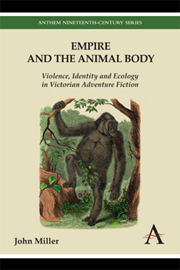Chapter Two - Scientists and Specimens
Published online by Cambridge University Press: 05 April 2013
Summary
Truth's Body
In a chapter titled ‘The Animals: Territory and Metamorphoses’ from Simulacra and Simulation, Jean Baudrillard considers a confession that he suggests science requires of animals, a confession that he writes ‘in the final moment’ is of ‘rationality’:
Animals must be made to say that they are not animals, that bestiality, savagery – with what the terms imply of unintelligibility, radical strangeness to reason – do not exist, but on the contrary the most bestial behaviours, the most singular, the most abnormal are resolved in science, in physiological mechanisms, in cerebral connections etc. Bestiality and its principle of uncertainty must be killed in animals […] Everywhere bestiality must yield to reflex animality, exorcising an order of the indecipherable, of the savage, of which, precisely in their silence, animals have remained the incarnation for us.
As Baudrillard argues later in the essay, ‘In a world bent on doing nothing but making one speak, in a world assembled under the hegemony of signs and discourse, their [animals'] silence weighs more and more heavily on our organisation of meaning.' Science's effect is to make wordless bodies eloquent with reflexes, mechanisms and behaviours, to produce a body of knowledge from the uncertainty of animal presences. While Baudrillard's work is centred on the late twentieth century's industrial-scientific regime, these processes are a continuation of the concerns of natural historians in the golden taxonomic age that went hand-in-hand with nineteenth-century imperial expansion.
- Type
- Chapter
- Information
- Empire and the Animal BodyViolence, Identity and Ecology in Victorian Adventure Fiction, pp. 57 - 96Publisher: Anthem PressPrint publication year: 2012

